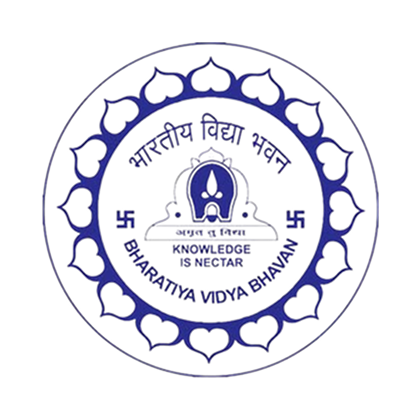
BHARATIYA VIDYA BHAVAN'S
M. M. College Of Arts, N. M. Institute Of Science, H. R. J. College Of Commerce
Bhavan’s College
(Autonomous 2020-30)
Established in 1946 | Re-accredited "A" Grade by NAAC | Munshi Nagar, Andheri (W), Mumbai - 400058
The Department of Geography has been a part Faculty of Social Sciences since 1980. Geography was earlier available as a subject up to SYBA, which has been extended to a full-fledged six paper Geography major course up to TYBA. The department also runs environmental studies course in the Commerce Faculty. As Geography is a highly dynamic and relevant subject to the immediate surrounding, the department attempts to continuously and revise and update the types of courses offered, syllabi and the teaching-learning techniques. Apart from making the students well-versed with the core knowledge of the subject, we also try to make the courses having applied components and vocational training. The department also offers handholding and mentoring to the slow learners, offering sessions in remedial coaching and conducting extra classes in vernacular medium.
Alternating learning techniques like field visits, study tours, group discussions are also held to make the subject easier to grasp and to challenge the creativity and curiosity of the students.
As Geography is known as the “mother of all sciences” the aim of the department is to introduce and train students in this scientific discipline, so that they can contribute to the existing knowledge, taking up higher studies in various earth sciences. The department also aims at creating globally aware and environmentally responsible citizens, who can face the challenges of the strained man-environment relation. With the academic knowledge, the students are also provided various skills in the subject, which shall be of direct help in getting employment and improve their career prospects. Major objectives of the department are –

The Geography Athenaeum:
No data
Memorandum of Understanding:
No data
|
Sr. No. |
Category |
Name |
Designation |
|
1. |
Head, Dept. of Geography/Env. Studies |
Prof. (Dr.) Ajay Kamble |
Bhavan’s College, Andheri Chairman |
|
2. |
Head, Dept. of Geography |
Prof. (Dr.) Sanjukta Sattar |
University of Mumbai Vice Chancellor’s Nominee |
|
3. |
Head, Dept. of Geography |
Maya Unde |
Ahmednagar. Member from other University |
|
4. |
Head, Dept. of Geography |
Prof. (Dr.) Pramodkumar Hire HPT/RYK College of Arts & Commerce, Nashik. Member from Other University |
Member |
|
5. |
Dept. of Env. Studies, |
Mr. Ravindra Deodhar SIWS College, Wadala, Mumbai. Member from parent university |
Member |
|
6. |
Director |
Mr. Sanjay Nimbalkar, |
Khushi Holidays Pvt. Ltd. Member, Industry Representative |
|
7. |
Ph.D. Scholar |
Mr. Balu Pawde |
IIT Bombay, Mumbai Member, Alumni Representative |
|
8. |
Dept. of Geography/Env. Studies, |
Dr. Sanjay Aghav |
Bhavan’s College, Andheri Member, Department Faculty |
Upcoming
| PSO | DESCRIPTION- A STUDENT COMPLETING B.A. PROGRAM IN GEOGRAPHY SHALL |
|---|---|
| PSO-1 |
Understand the inter-relationship between Geographical environment and human activities. The students shall become aware of various environmental problems faced by the world. |
| PSO-2 |
Know the spatial distribution of Economic activities of India in its Geographical Context. |
| PSO-3 |
Get introduced to urbanization, problems of urbanization and Urban Planning. |
| PSO-4 |
Understand the importance of Tourism activity and learn the basics of Tourism management. |
| PSO-5 |
Understand the distribution and dynamics of population with respect to geographical conditions. |
| PSO-6 |
Acquire skills in practical application of geographical knowledge. The students will be able to use topographic maps and IMD weather maps. |
| PSO-7 |
Learn basics of Research Methodology and use of statistical tools. |
| PSO-8 |
Get introduced to the basic concepts of Remote Sensing and Geospatial Technology. |
FYBA GEOGRAPHY: GEOMORPHOLOGY
FYBA GEOGRAPHY: HUMAN GEOGRAPHY
S.Y.B.A. GEO. II CLIMATOLOGY
S.Y.B.A. GEO. II: OCEANOGRAPHY
S.Y.B.A. GEO. III: PHYSICAL GEOGRAPHY OF INDIA
S.Y.B.A. GEO. III: AGRICULTURAL GEOGRAPHY
T.Y.B.A. GEO. IV: ENVIRONMENTAL GEOGRAPHY
T.Y.B.A. GEO. V: ECONOMIC GEOGRAPHY OF INDIA
T.Y.B.A. GEO. VI: URBAN STUDIES AND PLANNING-I
T.Y.B.A. GEO. VII: PRACTICAL GEOGRAPHY – I TOOLS AND TECHNIQUES OF SPATIAL ANALYSIS
T.Y.B.A. GEO. VIII: POPULATION GEOGRAPHY
T.Y.B.A. GEO. IX: GEOGRAPHY OF TOURISM
T.Y.B.A. GEO. X: RESEARCH METHODOLOGY
T.Y.B.A. GEO. XI: NATURAL HAZARDS AND DISASTER MANAGEMENT
T.Y.B.A. GEO. XII: URBAN STUDIES AND PLANNING-II
T.Y.B.A. GEO. XIII: INTRODUCTION TO REMOTE SENSING AND GIS
T.Y.B.A. GEO. XIV: PRACTICAL GEOGRAPHY - II
TECHNIQUES OF SPATIAL ANALYSIS, SURVEY/EXCURSION/PROJECT REPORT
T.Y.B.A. GEO. XV: GEOGRAPHY OF TOURISM – II
No Data